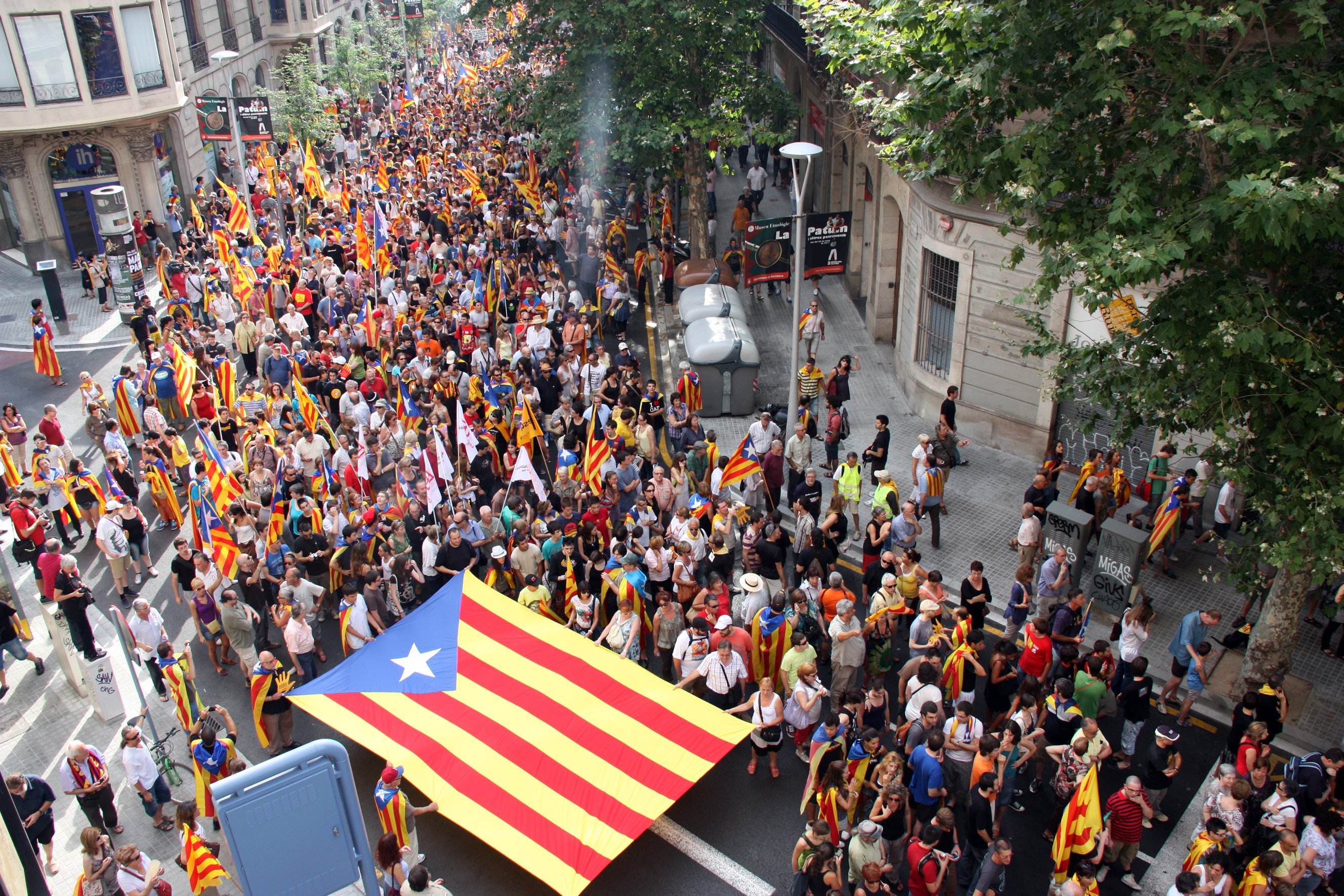A tough blow for the independence movement. According to the latest Omnibus poll from Catalonia's CEO public polling agency, the Catalan sovereignty movement has lost momentum. Only 40.8% want Catalonia to become an independent state, the survey finds. On the other hand, those Catalans who oppose independence comfortably exceed half the population: 52.3% said 'no' to independence from the Spanish state. A difference, then, of 11.5 percent. However, when the poll results were initially published, the difference was 14.5% (with 53.3% saying no to independence, and 38.8% declaring that they would vote yes). The CEO rectified its survey results the day after the initial publication, explaining that they contained an "error" that affected "the calculation and application of the weighting variable". The error affected several of the percentages displayed, including those related to independence questions.
In any case, the results of the study, conducted between November 17th and December 17th, 2021, and based on 1,200 respondents, mark a considerable contrast with previous studies. In May 2021, for example, opposition to independence was already ahead of the pro-independence movement. The CEO's survey at that time noted that the 'no' to independence option was the choice of 48.7%, compared to 44.9% in favour of a Catalan state. A difference of 3.8 points, which has now multiplied significantly to 11.5 points, a difference closer to poll findings from the years prior to the independence process. A far cry from October 2017, when, at the height of the independence process which culminated in the October 1st referendum and Declaration of Independence, supporters of establishing an independent Catalan state were well ahead in the official polls. However, since the middle of 2019, CEO polls have found the 'no' vote to be ahead - by varying single-figure margins, until now.
Junts, the most in favour
In a note posted on its website, the CEO, led by political scientist Jordi Muñoz, apologized for the mistakes discovered and announced that it had launched a "thorough review" of its internal processes, to "improve" the quality of surveys and "prevent mistakes like this from happening again." In terms of independence support by parties, Junts is the most pro-independence political party, with 93.2% support, and only 6% against. The CUP is second, with 85.7% in favour and 8.2% rejecting it. And ERC contains the most contradictions: 82.1% want independence, but 14.3% of those who support this pro-independence party actually oppose independence. As for the other parties, it is clear that Vox has the strongest resolve against independence, with 100% of respondents opposing it.
A broad consensus wants a referendum
Despite the poor results for Catalan independence in the yes/no preference, the survey does find broad support across Catalan society for a referendum that will allow Catalans to speak out and exercise their right to self-determination. In total, 72.6% of Catalans are in favour of holding a referendum on independence (37.8% strongly agree and 34.8% agree). Beyond that, only 19.1% oppose such a vote, while 4.8% do not opt for either option. All in all, it shows the breadth of support that this proposal enjoys in Catalonia, despite the questioning it has received, not only from the parties of Spanish right, but also from the Socialists - that is, Spain's PSOE and its Catalan branch, the PSC.
Other areas of the poll - also affected by the revisions - included a question over the planned change in the start of the school year, where the revised figures show that 45.4% of Catalans agree with bringing the start of the school year forward a week, and 35.8% are against. On the use of motorways after the removal of tolls, 76.3% of Catalans have said they don't use these infrastructures more since the lifting of the toll gates. Also, the percentage of those who believe that Barcelona's El Prat airport should not be expanded is 49.4% while those who believe that the infrastructure should be enlarged make up just 29.5% of respondents.

